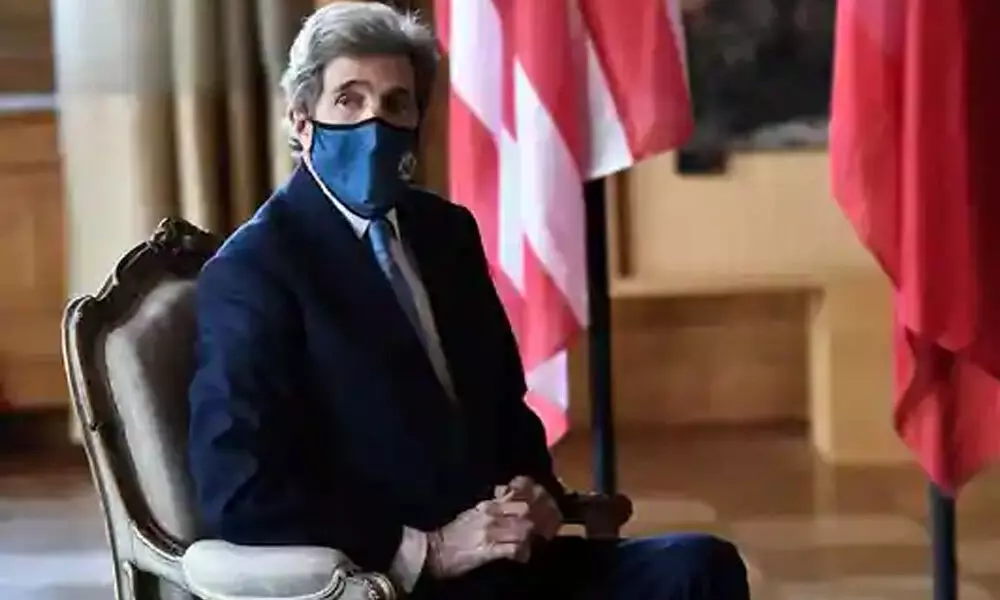Pressure on India to decarbonise fast

US climate envoy John Kerry (AFP)
US climate envoy John Kerry was in New Delhi last week to focus on India's commitment and efforts on climate mitigation and also discuss the US contribution to the same
US climate envoy John Kerry was in New Delhi last week to focus on India's commitment and efforts on climate mitigation and also discuss the US contribution to the same. The world is now focussing on renewable energy and India too is not lagging behind. But, given the size and numbers, India's problems are multiple. Our vision-less politicians only add to the misery more. It is with this view that the US is seeking to know the ways and means it could help India increase its renewable energy activities. Indo-US partnership is getting strengthened on this count by the day. Many initiatives had been launched since the visit including a new bilateral climate action and finance mobilisation dialogue. This cooperation can receive an additional boost through the Quadrilateral Security Dialogue, known as the Quad, which holds its first in-person leaders meeting this week.
Climate change is a top priority for all four Quad member-states – Australia, India, Japan, and the United States – and one of the Quad's three working groups is already focussed on climate. The Climate Action and Finance Mobilization Dialogue (CAFMD), which is mainly aimed at helping India achieve its 450 gigawatts (GW) renewable energy target, is being put in place now. However, it is not clear how India could plan to slash its carbon emissions fast and furious.
The big question facing India is whether it could achieve a Net Zero in this regard. Net zero means reducing greenhouse gas emissions as much as possible and then balancing out any further releases by absorbing an equivalent amount from the atmosphere – for instance, by planting trees. China, the world's largest carbon emitter, has already announced it will be carbon-neutral by 2060 and its emissions will peak before 2030 – although it has been criticised for building new coal plants.
The US, the second largest emitter, has set 2050 as the deadline to reach net zero and it says it will decarbonise its power sector by 2035. But the world's third-largest emitter India has neither announced the net zero year nor has it submitted to the UN an updated climate plan with raised carbon-reduction ambition, as required by the Paris agreement every five years. Going by the UN records of the 191 countries taking part in the agreement, hardly 113 have so far displayed their aggressive commitment. A new paper claims that India can achieve this cherished climate goal in the next 50 years, provided the right amount of funds are made available to it and the government commits to phasing out coal.
To achieve Net Zero emissions by 2065-70, India needs to cap its coal usage in the next 10 year. The emissions will peak by 2035. India has so far committed to reducing the emission intensity of its GDP by 33-35% by 2030 and having 175 gigawatt renewable energy capacity by 2030 under the Paris Agreement of 2016. There is renewed pressure on India to enhance its renewable commitment under the Paris deal to 450 GW by 2030 and phase out coal. To achieve the net zero target, India needs short-term decarbonisation targets along with climate action plans for the next three decades.

